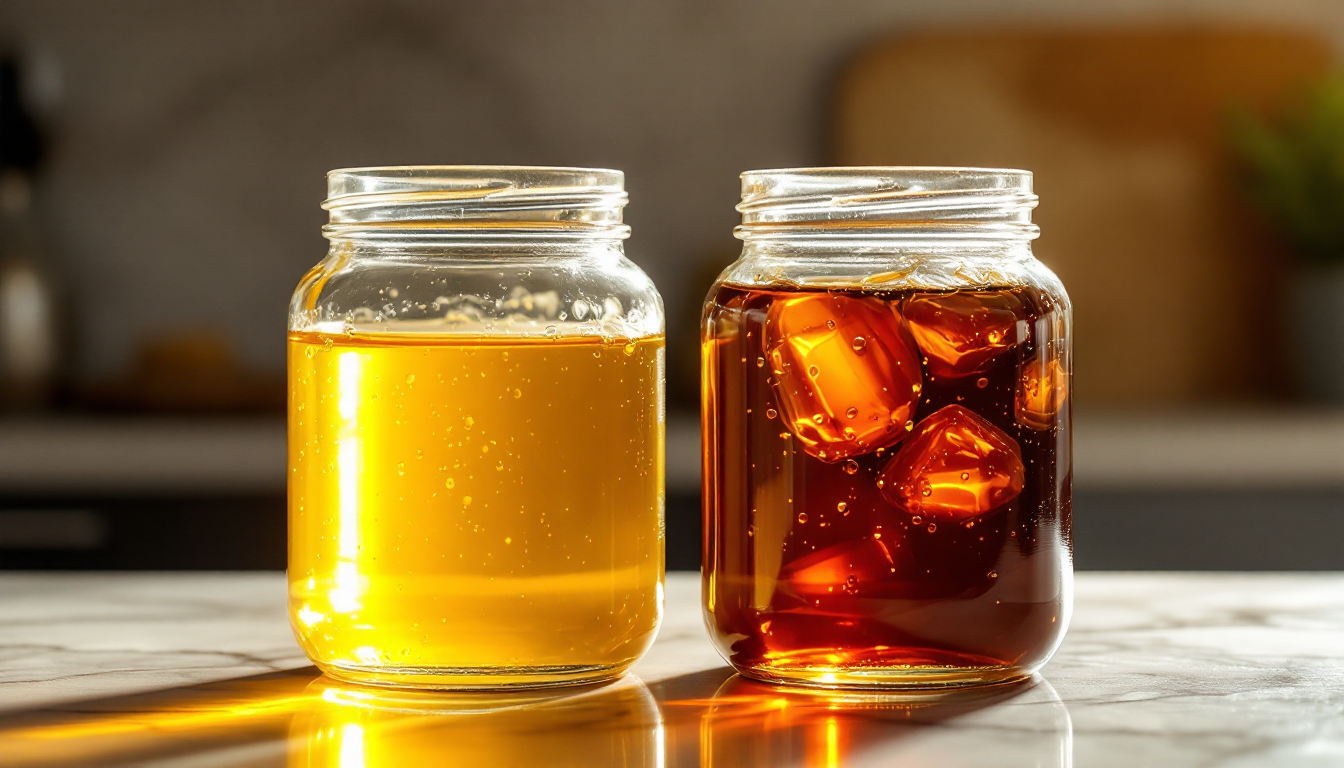Date syrup has gained popularity as a “natural” sweetener, but this liquid gold comes with significant health concerns that consumers should understand before making it a regular part of their diet.
The Surprising Sugar Content of Date Syrup
Date syrup contains approximately 70% sugar by weight, making it one of the most concentrated sweeteners available. A single tablespoon (20g) delivers about 14g of sugar – that’s nearly 3.5 teaspoons! While marketed as a healthier alternative to refined sugar, its extreme sugar density poses similar health risks when consumed regularly. The sweetness comes from a mixture of glucose and fructose, with the latter potentially causing more metabolic concerns when consumed in liquid form.
Why Your Body Can’t Tell the Difference
Despite marketing claims, your body processes date syrup similarly to other sugars. According to Dr. Michael Greger, founder of NutritionFacts.org, “The body doesn’t distinguish between sugars from dates versus table sugar once metabolized – both trigger similar insulin responses and metabolic pathways.” While date syrup has a slightly lower glycemic index (49-50) compared to white sugar (65), it still causes significant blood sugar spikes, especially in liquid form.
The Missing Fiber Problem
Unlike whole dates, date syrup lacks the protective fiber that normally slows sugar absorption. Registered Dietitian Lisa Drayer explains, “
When dates are processed into syrup, most of the beneficial fiber is removed, eliminating the natural ‘braking system’ that whole fruits provide against blood sugar spikes.
” This processing fundamentally changes how your body responds to the sugars present.
Health Risks of Regular Consumption
Regular consumption of concentrated sweeteners like date syrup is associated with several health concerns:
- Increased risk of metabolic syndrome and insulin resistance
- Promotion of systemic inflammation, linked to various chronic diseases
- Potential contribution to non-alcoholic fatty liver disease
- Dental decay from concentrated sugars
The “Health Halo” Marketing Deception
Date syrup benefits from what nutritionists call the “health halo effect” – being perceived as healthy due to its natural origin despite its high sugar content. Marketers emphasize trace minerals and antioxidants, but you’d need to consume harmful amounts of sugar to get meaningful nutritional benefits. One manufacturer claims their date syrup is “packed with potassium,” yet a serving provides just 6% of your daily needs while delivering 56% of recommended sugar limits.
Real-World Blood Sugar Impact
In a self-experiment documented by nutritionist Sam Feltham, consuming two tablespoons of date syrup caused a blood glucose increase from 84mg/dL to 163mg/dL within 45 minutes – a spike nearly identical to that caused by table sugar. “I was surprised to see such a dramatic glucose response despite claims about date syrup being gentler on blood sugar,” Feltham noted in his research.
Healthier Alternatives Worth Considering
Instead of date syrup, consider these genuinely healthier options:
- Whole dates: Provide natural sweetness with intact fiber (improves blood sugar response)
- Date sugar: Made from ground whole dates, retains fiber
- Cinnamon: Enhances sweetness perception without sugar
- Monk fruit extract: Zero-calorie natural sweetener
When Moderation Isn’t Enough
While occasional consumption of date syrup isn’t harmful for most people, its liquid form makes overconsumption remarkably easy. Dr. Robert Lustig, endocrinologist and sugar researcher, warns, “
Liquid sugars are particularly problematic because they don’t trigger the same satiety signals as solid foods, leading to higher overall consumption and caloric intake.
” This makes date syrup potentially more problematic than whole dates.
Date syrup represents a classic example of how “natural” doesn’t always mean healthier. While marginally better than refined sugar due to trace nutrients, it remains a concentrated sweetener that should be used sparingly, if at all. Your body will thank you for choosing whole fruit or zero-calorie alternatives instead of being misled by clever marketing of what is essentially liquid sugar with minimal nutritional benefits.
